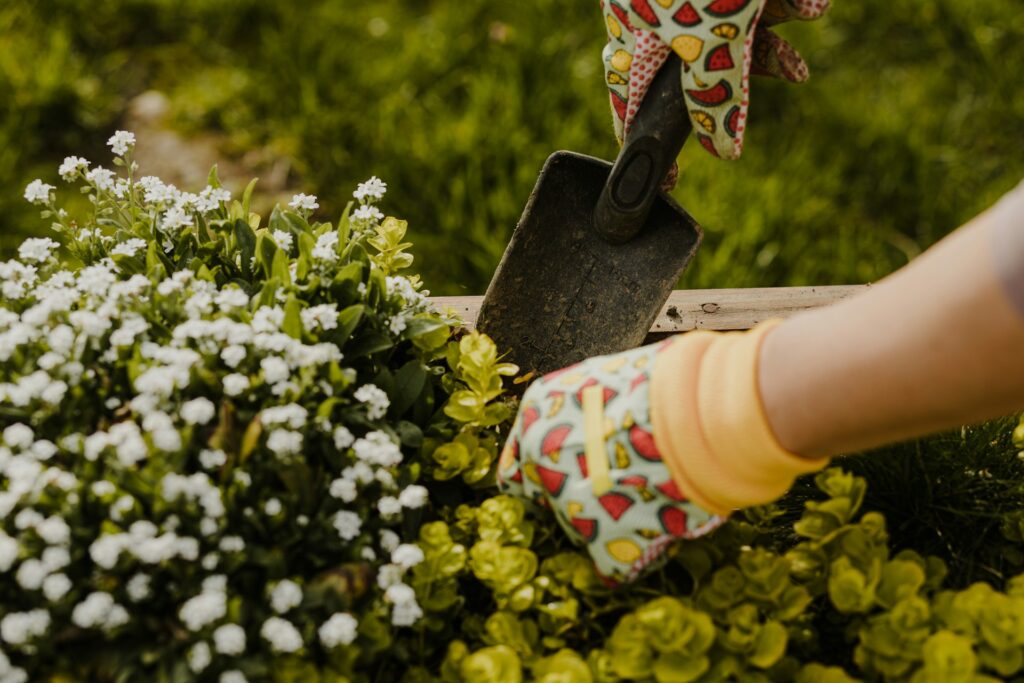Homeowners across Everett have started looking for ways to make their outdoor spaces more sustainable. Between rising temperatures and changing weather patterns, many residents are rethinking how their gardens impact the environment. From material selection to garden planning, every decision can either help or hurt long-term sustainability.
The good news is that eco-friendly landscaping does not mean compromising on looks or performance. There are ways to create a functional yard using materials that are better for the environment and easier to manage over time. Whether you are redoing your entire yard or just updating a garden bed, low-impact choices can make your Everett landscape work well and last longer with less upkeep.
Top Eco-Friendly Materials For Everett Gardens
Choosing landscaping materials that reduce waste, conserve water, and break down naturally can go a long way in improving your property’s environmental impact. Some of the most efficient and sustainable materials are also easy to find and install.
Here are a few low-impact options to consider for Everett gardens:
– Organic mulch: Bark mulch, wood chips, and composted yard waste help regulate soil temperature, reduce evaporation, and prevent weeds. These break down naturally and improve soil quality over time, so they do not need to be hauled away or replaced as often as synthetic options.
– Recycled materials: Crushed concrete, recycled glass, and rubber mulch made from repurposed tires can be useful for pathways and play areas. These reduce the need for new raw materials and help keep waste out of landfills. They are also durable and handle Everett’s changing weather conditions well.
– Natural stone: Flagstone, river rock, and gravel provide a low-maintenance option for walkways, planting borders, or sitting areas. They require less routine upkeep than wood-based materials and last longer without degrading or fading.
For example, a homeowner in north Everett replaced synthetic weed fabric and plastic edging in their front yard with bark mulch and natural stone borders. The result was a cleaner landscape with improved drainage and lower year-round maintenance needs.
Choosing the right eco-friendly materials reduces waste while keeping your garden looking sharp. Focus on hardscape and mulch options that hold up throughout Everett’s wet winters and dry summers.
Sustainable Practices In Garden Planning
Using the right materials is only one part of the process. Making smart planting and layout choices can lower your garden’s long-term maintenance needs and reduce water consumption.
To build a landscape that supports sustainable living in Everett, start with these practices:
1. Choose native plants: Plants that grow naturally in or near Everett adjust well to local conditions. They usually need less water and fewer chemicals to thrive. Salal, Oregon grape, and red flowering currant are a few examples that work well for home gardens.
2. Install water-saving systems: Drip irrigation lines deliver water directly to the roots where it is most effective, and rain barrels collect water runoff from roofs that would otherwise be lost. These systems lower water bills and create steady moisture levels for plants.
3. Compost on-site: Setting up a compost station or using a closed bin outdoors allows you to recycle kitchen scraps and yard clippings into a nutrient-rich soil additive. This keeps debris out of landfills and contributes to a healthier, self-supporting garden.
Integrating these practices early helps prevent costly updates and works well for homeowners who want to reduce time spent watering, fertilizing, or replanting. Focus on what your garden needs most, whether that is drainage support or better soil quality, then match those needs with sustainable solutions.
How to Source Eco-Friendly Landscape Materials Locally
Finding quality landscape materials in Everett WA does not mean settling for limited choices. Working with local suppliers reduces transportation-related emissions and gives you access to materials suited to Everett’s specific conditions.
Look for businesses that can explain where their materials come from and how they are processed. For example, bark mulch made from regional timber is a more sustainable choice than mulch shipped in from other regions. Reclaimed crushed rock or gravel can perform as well as new stone materials at a lower environmental cost.
Before buying, ask suppliers these questions:
– Is the mulch or compost made from clean, untreated wood or local organic waste?
– Are the stone products natural or manufactured, and are they sourced nearby?
– Has the recycled gravel or concrete been processed for safe residential use?
– Can you deliver in bulk to reduce packaging waste?
Experienced local suppliers in Everett understand challenges like poor drainage or erosion. They can recommend options based on your yard’s unique conditions, helping you avoid common problems like runoff or material shifting. Local sourcing improves consistency in material performance and supports sustainable gardening goals.
Why Sustainable Materials Pay Off Over Time
Eco-friendly choices often cost less over the long term. Gardens built using sustainable materials tend to need less water, fertilizer, and product replacement. That means fewer yard issues, especially as Everett’s shifting weather patterns put more stress on outdoor areas.
Using bark mulch or evergreen ground covers cuts down on weed growth and soil loss. Recycled gravel and natural stone provide sturdy, low-maintenance borders that stand up well to wet and dry cycles. Compost reduces reliance on store-bought fertilizers, and native plants require less water and pruning throughout the year.
Here are examples of how choosing sustainable materials can help common problems in Everett yards:
– Organic mulch retains moisture, helping reduce watering during dry spells.
– Recycled gravel improves drainage in areas with compacted or clay-heavy soil.
– Local compost enriches garden beds without causing runoff in heavy rain.
– Adapted native shrubs need less trimming and hold up better across seasons.
When your landscape materials match local demands, you spend less time dealing with repairs or replacements and more time enjoying the garden.
Practical Moves to Keep Your Everett Garden Sustainable
Creating a low-impact garden does not require a full redesign. A series of small, manageable changes can keep your landscape functional and efficient across seasons.
Switching to bark mulch instead of dyed wood chips or setting up a compost bin in a backyard corner are easy starting points. Rearranging plant beds based on water needs and installing a drip system ensures you do not overwater. If your property has sloped areas prone to erosion, adding gravel or natural stone edging can help slow and direct water flow.
Spend time observing your garden month to month. If mulch regularly blows away from one area, try a different type like shredded bark. If weeds push through gravel paths, consider adding border edging or a deeper base layer. These reviews help make your garden more resilient over time.
Everett homes can support sustainable outdoor spaces through smart materials, local sourcing, and thoughtful layout adjustments. With the right approach, your garden can become easier to manage while staying healthy and attractive through all seasons.
If you are dealing with issues like poor drainage or compacted soil in your Everett yard, incorporating the right landscape materials in Everett WA can make a lasting difference in building a low-maintenance, environmentally responsible outdoor space. Northwest Landscape Supply offers premium products tailored to local conditions, helping you create a garden that thrives through all seasons. For a quick estimate or to book a service visit, please contact us today.

